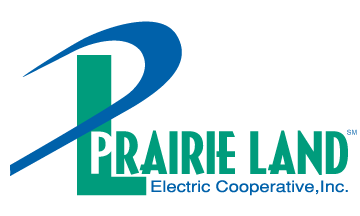This topic was featured in the September 2024 Kansas Country Living Centerspread.
Being a member-owned cooperative, keeping the lights on at a cost you can afford is the focal point of everything we do at Prairie Land Electric. Integrity is one of our core values, so in addition to sharing co-op successes, I believe we also have a responsibility to tell you about the challenges too.
In May, the U.S. Environmental Protection Agency (EPA) issued a rule that impacts energy production from power plants. The power plant rule will undoubtedly threaten access to reliable electricity for our local community and communities across the country.
The rule constrains existing coal and new natural gas plants by requiring them to install carbon capture and storage (CCS) — a technology that has potential but has not been proven to be viable as required. No power plant in North America currently uses CCS at the scale and levels mandated by EPA. When power plants aren’t able to comply with EPA’s CCS requirements, they will be required to shut down, significantly limit operations, or switch fuels. These unrealistic standards will force the unnecessary and early shutdown of many power plants that currently provide reliable electricity 24/7.
Prairie Land is a member-owner of Sunflower Electric Power Corporation, our generation and transmission provider. Sunflower uses a balanced approach to power supply for its members by maintaining a diverse generation portfolio to ensure reliability and affordability, Sunflower relies on baseload generation from coal and natural gas while also incorporating renewable resources like solar and wind to complement the energy mix.
While renewable sources, such as solar and wind, are important components of our overall generation mix, given the intermittent nature of these energy sources, we simply cannot depend on them because the wind doesn’t always blow and the sun doesn’t always shine. The need for always available power generating resources is still essential.
The timing of the power plant rule is equally troubling. At the same time the EPA is leading our nation down the path to fewer power plants, utilities are facing a surge in electricity demand — driven by the onshoring of manufacturing, the growth of the American economy and the rapid expansion of data centers to support artificial intelligence, e-commerce and cryptocurrency.
Many states have already experienced rolling outages, and if the supply of electricity is further threatened by the EPA’s power plant rule, the problem will only get worse. In fact, the North American Electric Reliability Corporation (NERC), the nation’s electric reliability watchdog, recently forecasted that over the next five years, all or parts of 19 states are at high risk of rolling power outages during normal peak electricity demand conditions.
It’s also no secret that when demand is high and supply is low, costs go up. We’re concerned about threats to reliability as well as cost increases to our members.
I don’t say all of this to worry you, but I do want our members to understand the challenges that lie ahead. Just as we’ve always done, we will look for solutions that serve our members best. We are joining electric co-ops across the country and our statewide trade organization, Kansas Electric Cooperatives, Inc., to fight these regulations, and we are working with our local elected officials and statewide policymakers to help them understand the consequences this would have on all Kansans.
Co-ops are no strangers to innovation, and we’re taking proactive steps to address today’s energy challenges and tomorrow’s energy needs. We’ve led the charge on industry endeavors such as community solar projects, and we’ll continue to explore new technologies and strategies that bolster reliability and our local grid.
Electric cooperatives like Prairie Land deliver power to 42 million Americans to make life better. At the end of the day, our top priority is to meet our members’ energy needs, and we must have reliable electricity available to do that.
If you’re interested in learning more about policy impacts to power reliability, or to make your voice heard on this matter, visit www. voicesforcooperativepower.com.
